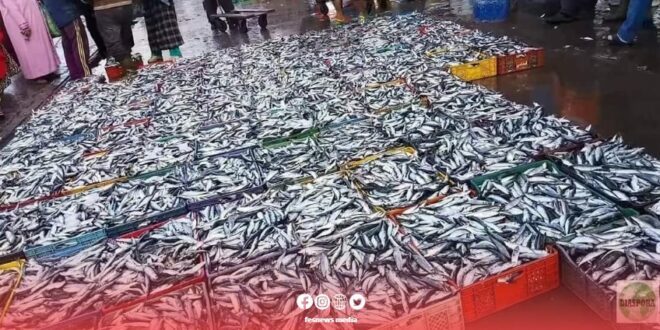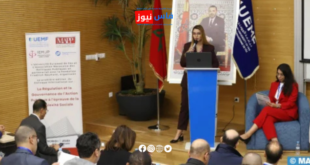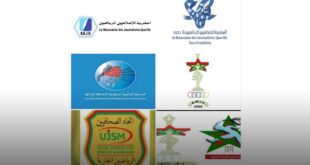Professionals in the fishing sector have recently called on the Competition Council to intervene in regulating fish sales channels and monitoring prices in Morocco. This comes in the wake of a significant increase in seafood prices, especially sardines, which has led to the exclusion of these products from the tables of low and middle-income Moroccan families.
The National Confederation of Wholesale Fish Traders in Moroccan Ports and Markets has proposed solutions aimed at revising working methods and fishing techniques. The Confederation affirmed in a statement that wholesale fish traders operate within the legal framework and strictly adhere to the applicable regulations.
The Confederation identified three main factors affecting fish prices in Morocco:
- Lack of control over supply and demand and regulation of market access.
- Climatic conditions and their direct impact on the marine environment, in addition to non-compliance with sustainable fishing standards.
- Absence of a strategic vision for promoting seafood products in port markets and sorting centers.
The Confederation called for the need to reach a collective agreement involving the Competition Council and relevant institutions to determine a fair purchase price while ensuring product quality. It also demanded the adoption of a “second sale law” and its integration into current legislation.
The Confederation pointed out that wholesale fish trade is subject to several laws that ensure the sustainability of fish resources and regulate the control of caught species, emphasizing the key role played by wholesale fish traders in the sector’s ecosystem.
This call comes at a time when the fishing sector is facing major challenges, necessitating the concerted efforts of all concerned parties to ensure the sustainability of marine resources and provide seafood products at reasonable prices for Moroccan consumers.
The Confederation stressed that wholesale fish traders play a crucial role in the sector’s ecosystem, interacting directly with all professional players. They emphasized the importance of implementing a real auction system, especially for sardines, to respect the Halieutis strategy, which aims to increase added value, improve fishermen’s income, and ensure the sustainability of fish resources.
To better regulate fish prices, the Confederation insists on the importance of reaching a collective agreement that includes the Competition Council, the National Fisheries Office (ONP), the National Food Safety Office (ONSSA), and the Ministry of Fisheries. This cooperation is considered crucial for determining a fair purchase price while ensuring the quality of seafood products reaching the end consumer.
Furthermore, the Confederation highlighted that wholesale fish trade is governed by Law 08-14, consisting of 35 articles that ensure the sustainability of fish resources, as well as Law 12-15, which regulates the control of caught species until their retail sale, and the food product safety law.
This call for action reflects the urgent need to address the challenges facing Morocco’s fishing industry, balancing the needs of consumers, the sustainability of marine resources, and the economic interests of those working in the sector.
 فاس نيوز ميديا جريدة الكترونية جهوية تعنى بشؤون و أخبار جهة فاس مكناس – متجددة على مدار الساعة
فاس نيوز ميديا جريدة الكترونية جهوية تعنى بشؤون و أخبار جهة فاس مكناس – متجددة على مدار الساعة













